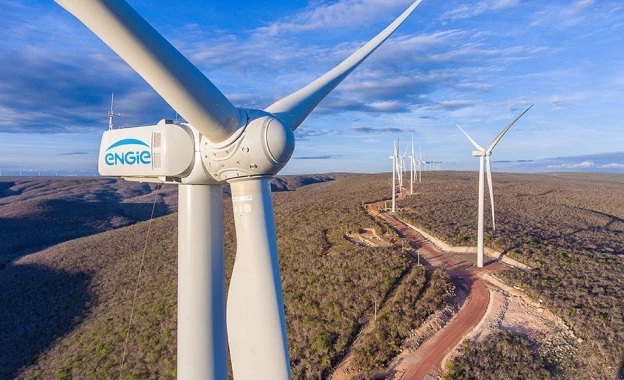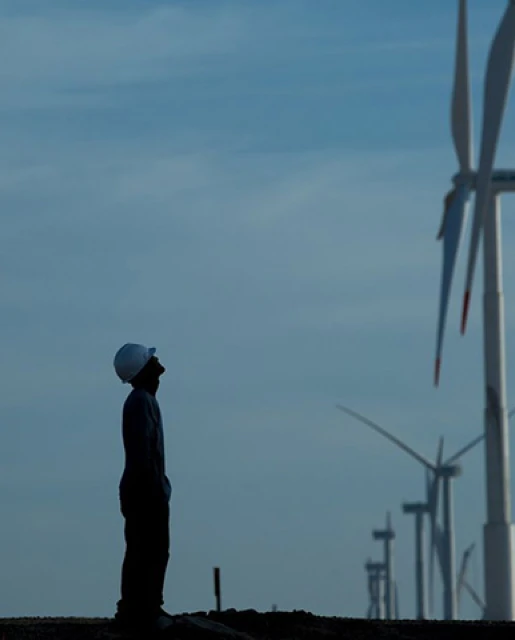The world is changing,
and so is our energy.
ENGIE, a leading renewable energy company in Brazil, operates in the generation, sale and transmission of electric energy, gas transportation and energy solutions. With its proprietary installed capacity of approximately 10 GW in 82 plants, which represents around 6% of domestic Brazilian capacity, the company has 100% of its installed capacity derived from renewable sources with low greenhouse gas (GHG) emissions, such as hydropower, wind, solar and biomass plants.
ENGIE also owns the most extensive natural gas transportation network in the country, with 4,500 km crossing 10 states and 191 municipalities, thanks to the acquisition of Transportadora Associada de Gás - TAG, completed in 2020.
In addition, ENGIE has a complete portfolio of integrated solutions for reducing costs, emissions and improving infrastructure for companies, such as compressed air, local solar energy self-production, biogas and biomass, consultancy and energy management, HVAC and substations. In the cities, we work as a partner to make urban spaces more efficient and sustainable, examples being solutions in public lighting, electrical mobility and district cooling.
With a headcount of 2,600, the Company reported a turnover in Brazil of R$ 11.7 billion in 2023.
ENGIE is represented on B3 through its energy generation and commercialization company, the stock market ticker of which is EGIE3. ENGIE is a component of B3’s Novo Mercado, as well as being one of the only component’s listed in the Corporate Sustainability Index since the inception of the ISE in 2005. In 2021, B3 included ENGIE’s shares in the Carbon Efficient Index (ICO2), comprising the stock of companies which are participants in the IBrX 100 and show greater transparency in the way they report their GHG emissions and how they are preparing for a low carbon economy.
ENGIE Brasil in numbers
Own installed capacity:
10 GW
More than
2,032 MW under construction
Turnover of
R$ 12.8 billion in 2022
renewable sources
100%
Transmission Lines in operation
3806 kms
We are approximately
2,600 employees in Brazil
Most extensive
gas pipeline network in Brazil

ENGIE’s Vision in Brazil
To transform how people relate with energy towards a more sustainable world.

ENGIE’s mission in Brazil
To offer innovative and sustainable solutions in energy and services to people, businesses, and cities.
Our story
A sustainable company is an ethical company
Throughout the world, ethics is a value which permeates all attitudes and initiatives of ENGIE and its employees. To know the Code of Ethics and other documents which reaffirm ENGIE Brasil’s conduct in all its businesses and relationships, please see:
ENGIE around the world
ENGIE is a global reference in low-carbon energy and services. With its 97,000 employees, its customers, partners and stakeholders, the Group is committed to accelerate the transition towards a carbon-neutral world, through reduced energy consumption and more environmentally-friendly solutions. Inspired by its purpose, ENGIE reconciles economic performance with a positive impact on people and the planet, building on its key businesses (gas, renewable energy, services) to offer competitive solutions to its customers. Turnover in 2023: 82.6 billion Euros.
The Group is listed on the Paris and Brussels stock exchanges (ENGI) and is represented in the main financial indices (CAC 40, Euronext 100, FTSE Euro 100, MSCI Europe) and non-financial indices (DJSI World, Euronext Vigeo Eiris – Europe 120 / France 20, MSCI EMU ESG screened, MSCI EUROPE ESG Universal Select, Stoxx Europe 600 ESG-X).
Know the ENGIE Group